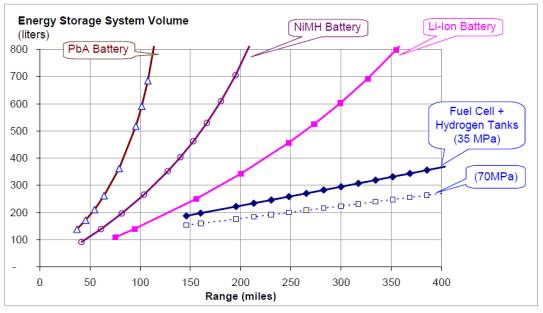Hydrogen Costs Must Come Down to Compete Against Fossil Fuels
by Rudy P. SysAdmin at howtofindthemoneyResearch and development, policy, market incentives and clear price signals will all be needed to help usher in a hydrogen economy, said a number of panelists during a webinar given July 20 by the Atlantic Council.
A key to making hydrogen competitive against the fossil fuels it's meant to replace is driving down cost, said Christian Bruch, president and CEO of Siemens Energy.
Hydrogen technology, said Bruch, "is quite old, it's available, but the commercial models of today are not working. If green hydrogen competes against blue hydrogen, you will fail, so to drive volumes up, we have to do it differently."
Green hydrogen is an industry term for hydrogen produced through electrolysis from renewable resources such as wind and solar, a process which does not emit any carbon dioxide. Blue hydrogen is an industry term for hydrogen produced from fossil fuels, but the CO2 is captured.
Current costs favor hydrogen produced from fossil fuels, as evidenced by S&P Global Platts hydrogen assessments.

"If we understand how to value the green hydrogen in the end sectors, like steel, how you put a value to that and how you drive volumes up to drive cost down, this collaboration with public bodies and industry can create that value," Bruch said.
Siemens is working with its customers to help lower their CO2 emissions, including advancing turbine technology that can burn a blend of natural gas and hydrogen, as well as turbines that can burn 100% hydrogen, he said.
Tom Linebarger, chairman and CEO of Cummins, said his company has evolved from building diesel-fueled powertrains for transportation to investing in hydrogen and fuel cell technology, including a partnership with Alstom to build hydrogen-fueled fuel cell trains in Europe.
It is important to develop safety codes and standards to help improve the adoption of hydrogen-based technology but also emphasized the need to "scale up" in order to make hydrogen more competitive, Linebarger said.
"It's needs infrastructure, and research and development and subsidies and incentives for deployment, otherwise it will always be cheaper to buy a diesel engine," he said. "So everything we can do to help on those is what makes the biggest difference."
Michael Berube, the acting deputy assistant secretary for transportation for the US Department of Energy's Office of Renewable Energy & Energy Efficiency, said global hydrogen trading is inevitable but first "we need to get the cost down."
"It's going to be a hard push, and electrification will give it a run for its money," said Berube, hinting at the progress already made by battery-based technologies.
Carbon capture could play a role in helping hydrogen producers meet the anticipated increase in demand, but the technology risks becoming stranded if the end goal is green hydrogen, said Paula Abreu Marques, head of Unit, Renewables and Carbon Capture and Storage Policy for the European Commission's Directorate-General for Energy.
Abreu Marques noted that the EU's recently released hydrogen strategy aims for green hydrogen to be cost competitive by 2030, and added that viable price signals would help spur investment, further speeding up the transition to hydrogen.
The Washington-based Atlantic Council is a nonpartisan think tank focused on intentional affairs.
The 10 largest coal producers and exporters in Indonesia:
Source: SP Global
Sponsor Ads
Created on Jul 22nd 2020 03:06. Viewed 471 times.
Comments
No comment, be the first to comment.



